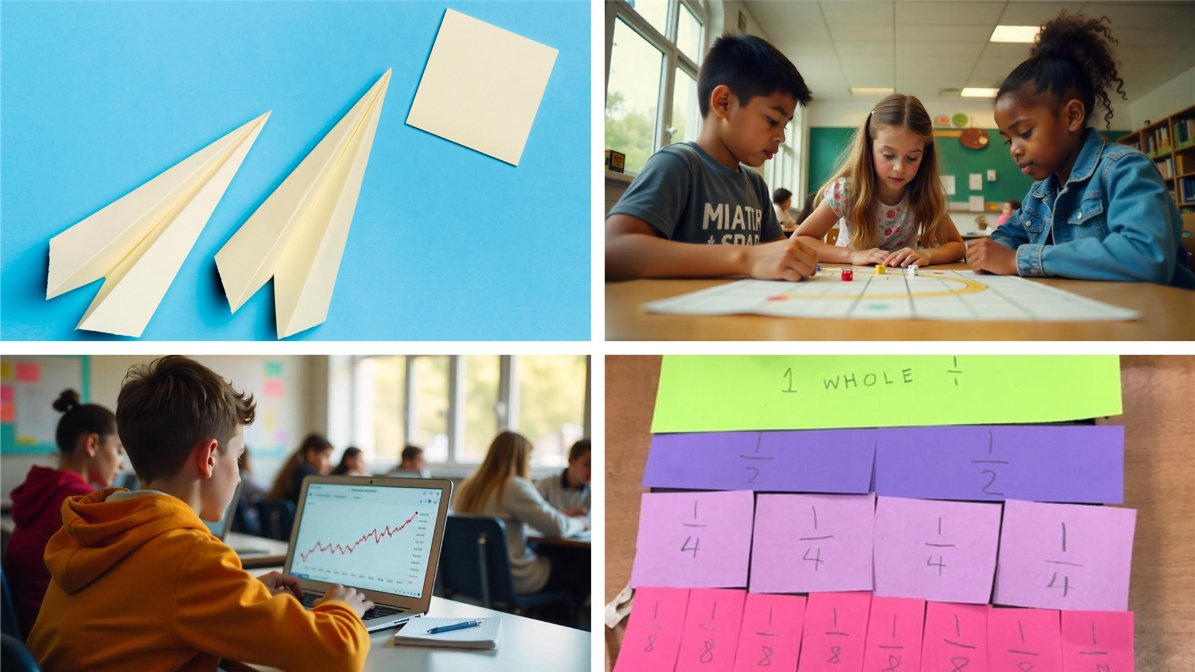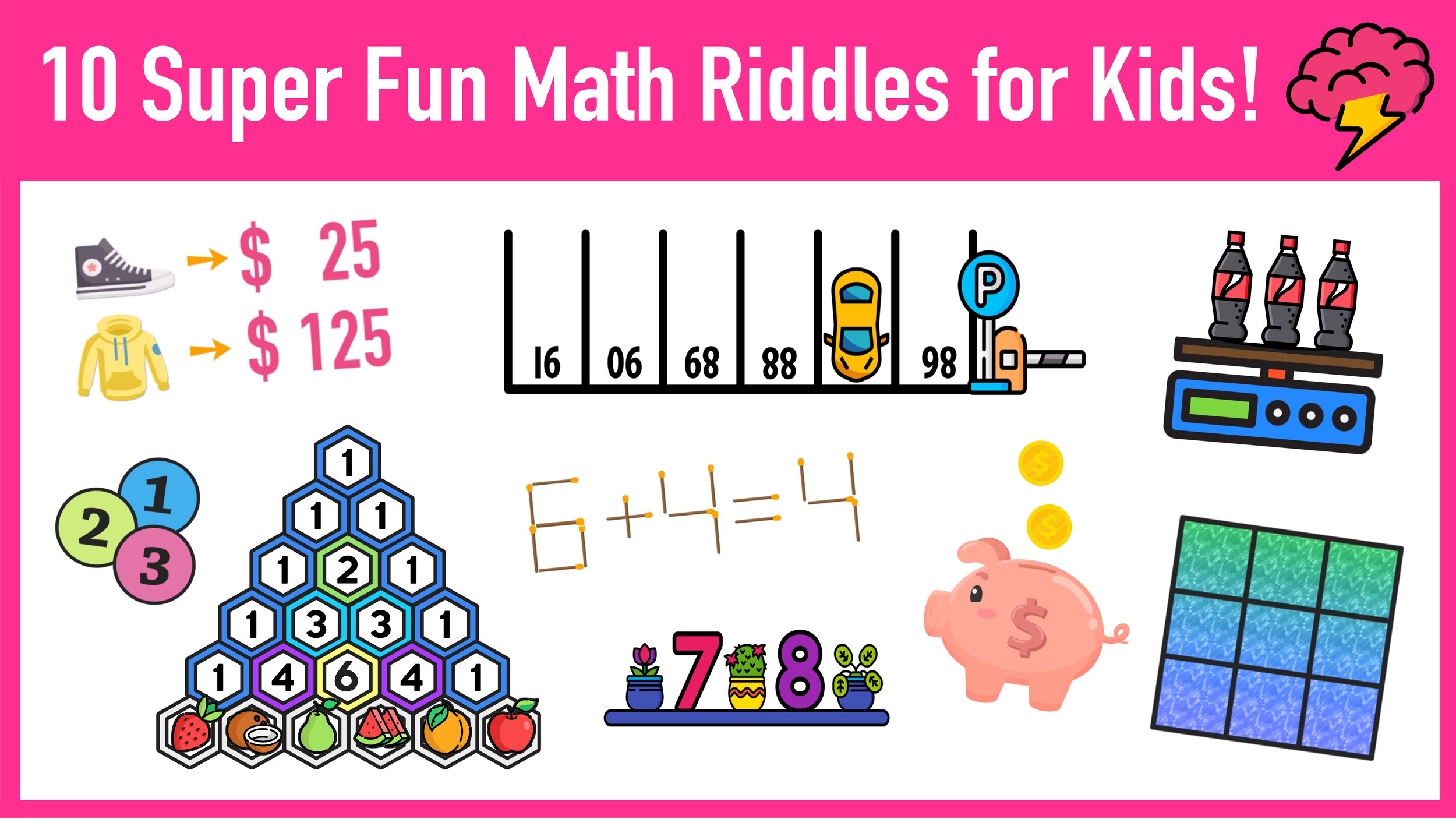How to Help My Child with Math at Home: 7 Tips
How to help my child with math at home. (Image: Mashup Math via Getty)
Many parents want to understand how important mathematics is for their child’s future and they genuinely want to excel in the subject.
But many parents also struggled with mathematics when they were students, and they don’t feel confident in supporting their child’s math learning outside of the classroom.
In fact, studies show that parents with math anxiety can actually undermine their children’s math achievement by spreading their negative attitudes towards the subject to their kids.
When parents push too hard, their child can feel overwhelmed and stressed. When parents are too hands-off, then their child may not value the importance of mathematics at all.
As a result, far too many students learn to view math as a chore instead of an invaluable life skill.
If you are a parent wondering how to help my child with math at home, then the following tips will help you to support your child’s math learning and prevent you from passing on any negative attitudes or math anxiety.
The following collection of tips will not require you to spend hours relearning tricky elementary math topics like the order of operations or simplifying fractions. Instead, the focus will be on developing a positive attitude for learning mathematics combined with a reliable support system to ensure that your child continues to pursue math education beyond the point where many give up.
How to Help My Child with Math at Home
Tip #1: Keep Your Cool
How to help your child with math at home: There is a growing body of research suggesting that playing games can support the development of mathematical thinking skills. (Image: Mashup Math MJ)
The idea that only certain people are capable of learning math is a harmful misconception.
The idea of being a math person has caused an extreme amount of damage to student attitudes and has given many of them an excuse to quit learning mathematics prematurely.
This idea, however, is simply untrue. Just like it is completely reasonable to expect every student to become skilled in reading and writing, we can expect every student to be able to think and solve problems mathematically.
While you may have fallen victim to out-of-touch teaching practices that failed to meet your needs as student and, as a result, have adopted this belief that you are simply not a math person, it does not mean that your child has to suffer the same fate.
A recent study showed that sharing negative feelings with our children can severely increase anxiety and degrade their attitude towards learning math. Education has been continuously evolving over the past few decades and no longer resembles the environment that many parents were exposed to.
Modern students think about and learn mathematics in very different ways. Parents do their children a disservice when they impart their negative experiences about math education onto them.
If you want to help your child with math at home, then you need to leave your past negative experience with mathematics behind and approach the situation with an open mind.
Tip #2: Understand the Purpose
How to Help My Child with Math at Home: Help them understand why math is important. (Image: Mashup Math MJ)
Just because you do not remember the ins-and-outs of fractions or even algebra does not mean that you cannot support your child with math at home.
It is, however, necessary that you reinforce why learning math is useful and advantageous. When you say things like “you are never going to use this in life,” your children respond by devaluing the skills they are learning.
While your child will likely never have to simplify a square root in the real world, he or she will have to solve complex problems. To be successful in life, students must develop into creative problem solvers who can think critically and mathematically.
If you want to help your children with math at home, then you need to help them to understand why they are learning it in the first place.
Tip #3: Hire a Tutor
Studies show that children who meet regularly with a tutor have reduced math anxiety. (Image: Mashup Math MJ)
Wondering how to help your child with math at home? Hiring a tutor is a good place to start.
This tip for supporting your child’s math education may seem obvious, but many parents do not fully appreciate the impact that a one-on-one tutor can have.
NPR recently reported on a study that focused on the effect of one-to-one tutoring relationships on student anxiety and math test scores. The conclusion of the study was that students who had regular meetings with an individual tutor had significantly lower levels of academic anxiety than students who did not. Students with a one-to-one tutoring relationship were also better able to get through areas of difficulty without becoming discouraged.
That’s why individualized online learning formats, such as one-on-one math classes, are gaining popularity among parents looking for flexible and effective ways to support their children’s progress in math.
Hiring a private math tutor for your child can have huge benefits, but it can also be cost- and time-prohibitive for many, which is why the next tip offers an effective and more accessible alternative.
Want more advice and resources on how to help your child with math at home? Sign-up for our free Math Education Email Newsletter to start receiving resources in your inbox every week.
Tip #4: Build a Relationship with Your Child’s Teacher
How to Help My Child with Math at Home: Stay in touch with your child’s teacher by phone or email on a bi-weekly basis. (Image: Mashup Math MJ)
One thing that every parent can do to support their math education at home is to establish consistent and positive communication with their child's teacher.
Why? Because staying in tune with what your child is learning and being aware of how he or she is responding to classroom instruction will help you to understand where and when support is needed.
Most teachers have regularly scheduled before or after-school hours (which is essential free private tutoring) for your child to gain extra help and small-group or even one-on-one instruction.
Additionally, teachers tend to give more attention to students whose parents are more involved.
This extra attention is not a matter of treating students unfairly, but when a teacher regularly communicates with one of her student’s parents, then, as a result, she starts to spend more time thinking about ways to better meet that student's individual needs.
Parents should be aware that teachers have limited time and refrain from bombarding them with phone calls and emails. A weekly or bi-weekly phone or email conversation is perfectly sufficient, in most cases, for establishing regular and meaningful communication.
Tip #5: Use Online Resources
How to help your child with math at home: Virtual Math Manipulatives (or digital hands-on activities) are a great resource for exploring difficult math concepts in a visual way at home. (Image Source: Mashup Math MJ)
Many parents do not take advantage of so many helpful free online math resources made specifically for children.
One math resources—ranging from practice worksheets to virtual hands-on activities to animated video lessons—give children opportunities to explore and learn difficult math procedures and concepts and procedures at home.
Here are a few links to free online math resources that you can start using with your child at home today:
Tip #6: Gamify
How to Help My Child with Math at Home: Utilize hands-on activities—like building fraction kits out of construction paper—as opportunities to explore and learn math at home. (Image: Mashup Math ST)
There’s to practicing, exploring, and earning mathematics than completing worksheets.
There are tons of benefits to working on hands-on activities that are fun, engaging, and powerful opportunities for your child to explore challenging math concepts and build meaningful conceptual understanding of topics like fractions, probability, and geometry.
While even activities like Sudoku puzzles or building structures using Legos can help your child to develop problem solving, creative thinking, and spatial awareness, there are even further benefits to hands-on activities specifically designed to help your child to develop math skills through play.
Here are a few links to fun hands-on math activities that you can start using with your child at home today:
Tip #7: Become a Student Again
Your child can deeper her understanding of math concepts by teaching them to you at home. (Image: Mashup Math MJ)
One of the best ways to better understand something is to teach it to someone else—and mathematics is no exception. This idea is often used to support the use of peer tutoring, where teachers group struggling students with higher performing classmates.
When you have to teach something to someone else, then you have to stop and think about the best way to express your understanding, which ultimately strengthens your grasp of the material.
As a parent, take advantage of these benefits by allowing your child to teach you what they have learned in school. Work through practice problems together and ask thoughtful questions. In this role reversal, your child will be the teacher and you the student.
You may just be pleasantly surprised by how much of a difference such a simple practice can make on your child’s academic development.
Do you want free K-8 math resources, worksheets, and activity ideas in your inbox every week?
Click here to sign-up for our free Math Education Email Newsletter
















